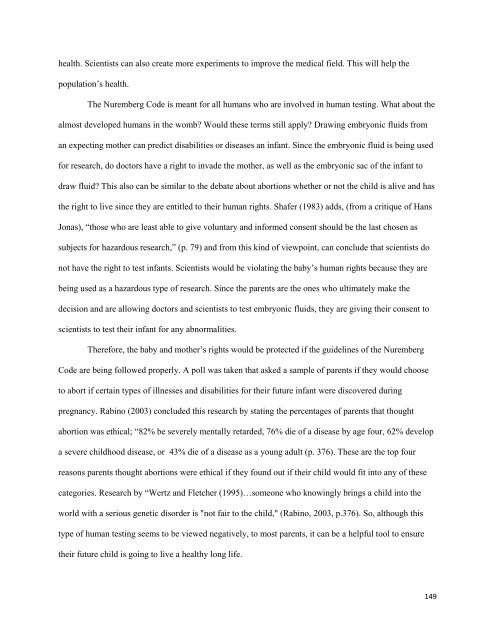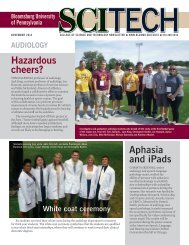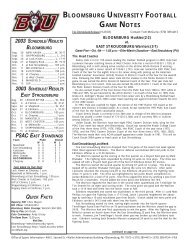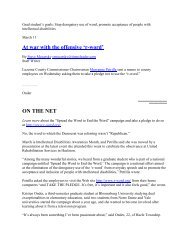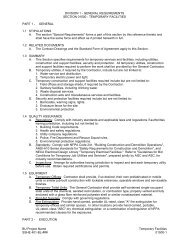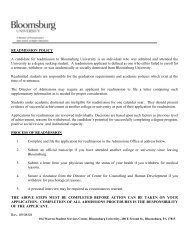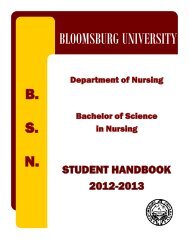Human Rights at Home and Abroad: Past, Present, and Future
Human Rights at Home and Abroad: Past, Present, and Future
Human Rights at Home and Abroad: Past, Present, and Future
Create successful ePaper yourself
Turn your PDF publications into a flip-book with our unique Google optimized e-Paper software.
health. Scientists can also cre<strong>at</strong>e more experiments to improve the medical field. This will help the<br />
popul<strong>at</strong>ion‘s health.<br />
The Nuremberg Code is meant for all humans who are involved in human testing. Wh<strong>at</strong> about the<br />
almost developed humans in the womb? Would these terms still apply? Drawing embryonic fluids from<br />
an expecting mother can predict disabilities or diseases an infant. Since the embryonic fluid is being used<br />
for research, do doctors have a right to invade the mother, as well as the embryonic sac of the infant to<br />
draw fluid? This also can be similar to the deb<strong>at</strong>e about abortions whether or not the child is alive <strong>and</strong> has<br />
the right to live since they are entitled to their human rights. Shafer (1983) adds, (from a critique of Hans<br />
Jonas), ―those who are least able to give voluntary <strong>and</strong> informed consent should be the last chosen as<br />
subjects for hazardous research,‖ (p. 79) <strong>and</strong> from this kind of viewpoint, can conclude th<strong>at</strong> scientists do<br />
not have the right to test infants. Scientists would be viol<strong>at</strong>ing the baby‘s human rights because they are<br />
being used as a hazardous type of research. Since the parents are the ones who ultim<strong>at</strong>ely make the<br />
decision <strong>and</strong> are allowing doctors <strong>and</strong> scientists to test embryonic fluids, they are giving their consent to<br />
scientists to test their infant for any abnormalities.<br />
Therefore, the baby <strong>and</strong> mother‘s rights would be protected if the guidelines of the Nuremberg<br />
Code are being followed properly. A poll was taken th<strong>at</strong> asked a sample of parents if they would choose<br />
to abort if certain types of illnesses <strong>and</strong> disabilities for their future infant were discovered during<br />
pregnancy. Rabino (2003) concluded this research by st<strong>at</strong>ing the percentages of parents th<strong>at</strong> thought<br />
abortion was ethical; ―82% be severely mentally retarded, 76% die of a disease by age four, 62% develop<br />
a severe childhood disease, or 43% die of a disease as a young adult (p. 376). These are the top four<br />
reasons parents thought abortions were ethical if they found out if their child would fit into any of these<br />
c<strong>at</strong>egories. Research by ―Wertz <strong>and</strong> Fletcher (1995)…someone who knowingly brings a child into the<br />
world with a serious genetic disorder is "not fair to the child," (Rabino, 2003, p.376). So, although this<br />
type of human testing seems to be viewed neg<strong>at</strong>ively, to most parents, it can be a helpful tool to ensure<br />
their future child is going to live a healthy long life.<br />
149


